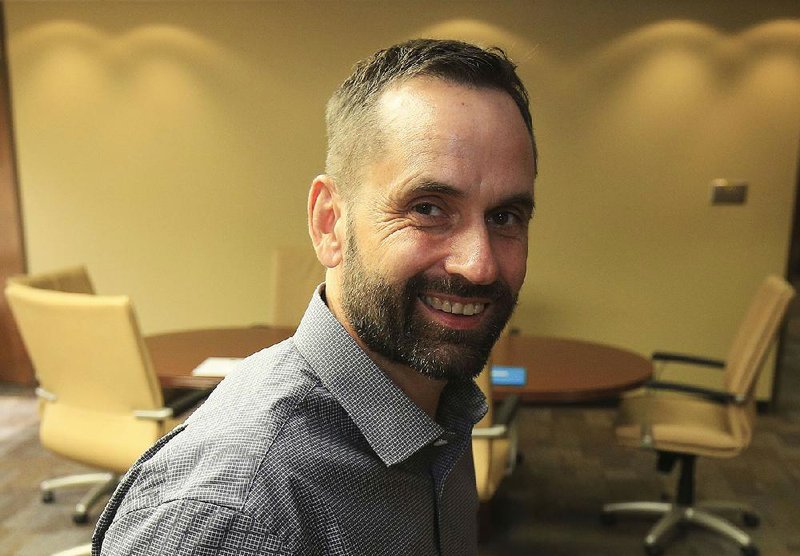Closing the achievement gap in the Pulaski County Special School District "now seems doable" thanks to academic interventions in place in the district, a court-appointed desegregation expert to a federal judge has concluded.
Margie Powell, in a report to Chief U.S. District Judge D. Price Marshall Jr., said the Pulaski County Special district "has initiated several policies, programs and practices that target student achievement." And the district can now provide assistance to individual students, help teachers with classroom management techniques, mentor inexperienced teachers and help them to develop their teaching skills, she also said.
"These antidotes can go a long way to helping the PCSSD to achieve the goal of reducing the achievement gap," Powell said in the fifth of eight reports she is preparing on efforts by the Pulaski County Special and Jacksonville/North Pulaski school districts to meet their long-standing desegregation commitments.
Marshall is the presiding judge in a 37-year-old school desegregation case in which Pulaski County Special and Jacksonville/North Pulaski are the two remaining defendant districts.
[DOCUMENT: Report on academic achievement efforts in PCSSD » arkansasonline.com/1211report/]
The judge asked Powell to prepare the reports in advance of next summer's court hearing on the districts' eligibility to be declared unitary and released from further monitoring of their operations.
Powell's reports focus on discipline practices, student achievement, staffing incentives and the condition of school building facilities in the districts.
This latest report shows that the achievement gap between black and white students in the 12,000-student Pulaski County Special district narrowed in 2019 in some grades but expanded in other grades as compared with the 2016 achievement gap on the state-required ACT Aspire exams.
The exams are given annually in grades three through 10.
In fourth grade, for example, the black-white achievement gap from 2016 to 2019 widened in every tested subject area: English, reading, science and math. Eighth grade similarly saw an expanded gap in all subjects except math -- which was unchanged since 2016. On the other hand, the gap between black and white students narrowed in all seventh grade subject areas between 2016 and 2019.
The achievement gaps in the different grades and subject areas ranged from 7 percentage points to as many as 28 points.
The Pulaski County Special district's desegregation plan -- Plan 2000 -- specifically calls for the district to implement plans to improve student achievement as envisioned by education professor Steven Ross, who was at the University of Memphis at the time the plan was written. The plan further requires the district to work with Ross in their implementation.
Ross has moved away from the Memphis campus and is a senior research scientist and professor at Johns Hopkins University in Baltimore.
But Powell said in her report that the Pulaski district continues to work with the University of Memphis. The district uses a school improvement plan developed by the Center for Research in Educational Policy -- affiliated with the University of Memphis -- to address achievement and discipline disparities in the district.
Superintendent Charles McNulty said the district no longer uses the Memphis organization but does its own internal collections and analyses of data based on the requirements of Plan 2000.
That Formative Evaluation Process for School Improvement process uses data from multiple sources, such as a climate inventory, teacher questionnaire, teacher focus groups and classroom observations, Powell said.
The district sends the data to the research center for processing and analysis, including the compilation of individual school reports to be used by the schools for planning, Powell told the judge.
Powell listed initiatives underway in the district to strengthen academic achievement. Those include Advancement Via Individual Determination or AVID, which is a national model for providing training, resources and other supports to improve achievement and reduce discipline disparities between black and white students.
Some of the other initiatives being used by the district in regard to improving student achievement, Powell said, are Go Math, which is designed to increase higher order thinking skills; Project Lead the Way, which promotes science, math and technology learning; and various reading programs that are based on phonics and other research done on how students best learn to read.
Additionally, the district has collaborated with the University of Arkansas at Little Rock and Philander Smith College to form the Charles W. Donaldson Scholars Academy to familiarize and assist high school students with college requirements. The district has also created the Driven program at its high schools that is a blend of traditional classroom and self-paced instruction.
Alesia Smith, the Pulaski County Special district's deputy superintendent, welcomed the report from Powell.
"We are excited to see the focus on data driven decisions, intentional feedback, and collaboration are making a difference in our schools," Smith said in an emailed response to the report.
"Our school teams are working hard every day to ensure that we provide the best instruction to all our students. Equity and excellence all day, every day is our goal," Smith said.
A Section on 12/11/2019

